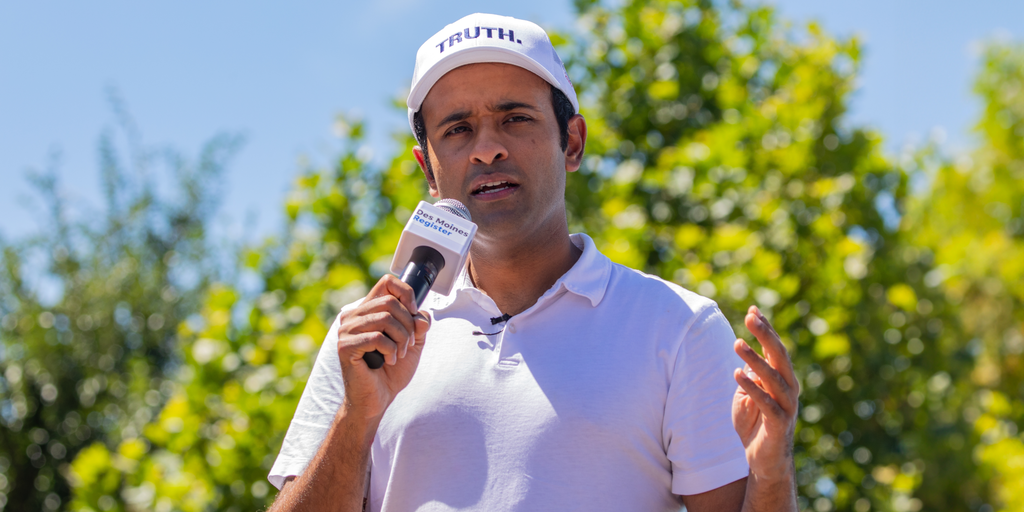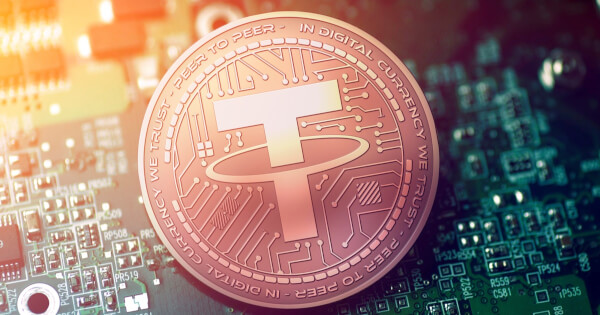As Republican presidential hopeful Vivek Ramaswamy rides a wave of exposure following his breakout performance in last week’s kickoff GOP primary debate, the public is getting a closer look at the tech entrepreneur’s vision for America—including the role of cryptocurrency.
While many of Ramaswamy’s proposed policies rhyme with those of his primary challengers, they also tend to lean further into the realm of the extreme and provocative. The 38 year-old businessman has called to abolish the FBI, the Department of Education, and the Nuclear Regulatory Commission. He acknowledges that climate change is man-made, but claims the only remedy is doubling down on fossil fuel consumption.
Ramaswamy has also long been a vocal advocate for crypto. Now, as the candidate rises in the polls, his views on the issue could offer a glimpse at how crypto discourse in the presidential election may be shifting.
On Wednesday, Ramaswamy celebrated a DC appeals court’s ruling against the Securities and Exchange Commission (SEC), in which the court opened the door to the possibility of a Grayscale-backed spot Bitcoin ETF that the SEC had attempted to deny alongside similar applications from other firms.
“The shadow government in D.C. is out of control, and the federal courts are our only remaining line of defense against the unlawful rogue behaviors of three-letter government agencies,” Ramaswamy said of the decision.
By casting the SEC as the principal (if not sole) villain in the saga of crypto regulation, the millennial entrepreneur has tacked from the rhetoric of other Republican presidential candidates (like Ron DeSantis), who have generally sought to hang the SEC’s crypto skepticism around the neck of President Joe Biden.
It’s true that Republican lawmakers have long lambasted SEC chairman Gary Gensler as a nefarious, dangerously anti-crypto figure—but some Republican presidential candidates have even chided the SEC for not going far enough in certain cases, such as in failing to prevent last November’s collapse of prominent crypto exchange FTX.
By framing the SEC as an existential bureaucratic threat that can do no good, not just as a puppet and mouthpiece of the Biden administration, Ramaswamy appears to be attempting to fuse his vitriol for the SEC with his campaign against the existence of much of the federal government.
At campaign stops, Ramaswamy routinely promises to shut down the “fourth branch of government,” the so-called deep state of executive branch bureaucrats that the candidate claims wields secret, unaccountable control over the machinations of the nation. Former President Donald Trump routinely invoked the deep state as a political enemy while in office, often to condemn any member of government whose actions the president did not approve of.
In this sense, invocations of the “deep state” often transcend partisan politics: even a president in power, apparently, can be targeted by its invisible tendrils. It appears this same logic also applies to the SEC, in Ramaswamy’s eyes.
Though many other Republican candidates would likely see the crypto issue dealt with by replacing Gensler with a DeFi-friendly SEC chairperson, Ramaswamy’s messaging appears increasingly concerned with labeling the mere existence of the SEC as problematic.
It remains to be seen if Ramaswamy’s apparent tactic of attempting to outflank Trump with stances more provocative than the former president’s will lure Republican primary voters. But his recent polling uptick suggests it may be working.
And the more Ramaswamy frames the issue of regulation as one of fighting deep state actors whose existence itself is a threat—more so than as a political issue on which elected Democrats pose the greatest danger—the more unpredictable the crypto presidential discourse may get.
Credit: Source link















































